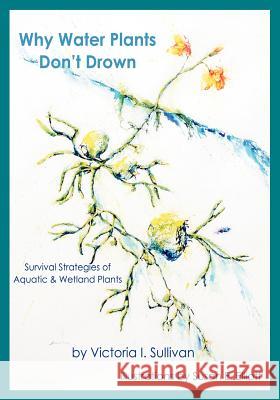Why Water Plants Don't Drown: Survival Strategies of Aquatic and Wetland Plants » książka
Why Water Plants Don't Drown: Survival Strategies of Aquatic and Wetland Plants
ISBN-13: 9781936671106 / Angielski / Miękka / 2012 / 104 str.
Flooding is a serious problem for plants. As with humans, when plants (and plant roots, in particular) that normally live out of water are submerged underwater, they suffocate. But plants that naturally live in wet places don't die How are they able to survive in water when upland plants cannot? Sullivan explains how water plants have adapted strategies for overcoming the hazardous conditions of living in water. WHY WATER PLANTS DON'T DROWN begins with an introduction to the basic biological and ecological requirements of all plants (gas exchange, exposure to light, structural support, and reproduction). Sullivan goes on to describe how aquatic plants (Divers, Floaters, and Floating-Leaf Plants) meet those requirements. The second part of the book covers emergent wetland plants, which Sullivan refers to as Waders (plants that only get their "feet" wet). Adaptations for living in the water evolved at different times and from unrelated groups of upland plants. Sullivan's clear explanations and Elliott's lively illustrations make it effortless and fun to understand how plants adapted to living in water. Sullivan draws from her years of teaching and field experience to illuminate fascinating biological details of the many example species she includes for each category of water plants. The intriguing insights and colorful artistic interpretations will make any nature enthusiast eager to explore aquatic and wetland plant ecology.











